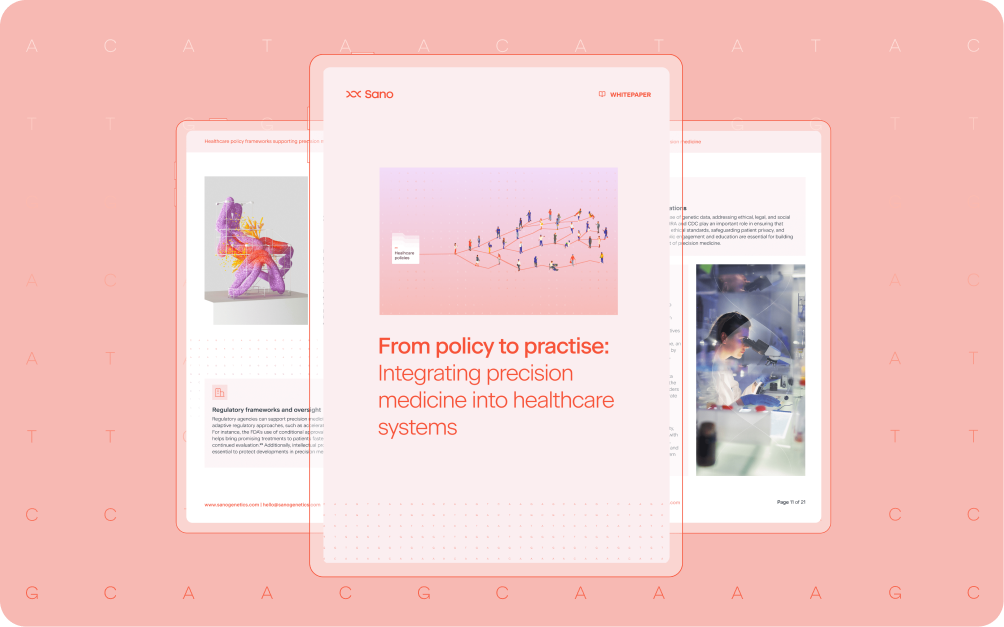Driving innovation: The role of policy in precision medicine

Precision medicine is transforming healthcare by tailoring treatments to individual patients based on genetic, environmental, and lifestyle factors. Our latest whitepaper, "From policy to practise: Integrating precision medicine into healthcare systems," highlights how effective policies can make this a reality.
Here’s a quick summary – download below for all the details.
Government and regulatory bodies like the FDA, NIH, NHS, and Genomics England are essential in driving innovation and ensuring the safety of new treatments, particularly in precision medicine. These agencies create and enforce policies that help scientific advancements become accessible and equitable. And, robust policy frameworks are crucial for precision medicine to thrive. Our whitepaper details key strategies, such as regulatory oversight, data infrastructure, funding, and ethical considerations, necessary to support this field.
Economic benefits are a major highlight. Precision medicine can reduce drug development costs by 17%, potentially saving the global pharmaceutical industry up to $26 billion annually. Supportive policies can maximise these advantages. Key to these policies is effective collaboration. Initiatives like the NHS's genomic medicine service and Sano's Light the Way programme show how national-scale efforts can successfully integrate precision medicine.
Strategic policy interventions are vital for the future of medicine. Our whitepaper offers recommendations to create an environment where precision medicine can flourish, supporting innovation and ensuring equitable access.
Interested in a detailed look on how health policy impacts precision medicine? Download our whitepaper below.


